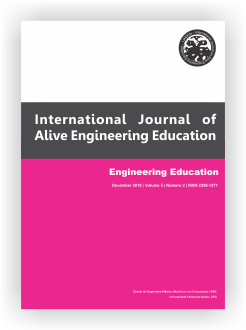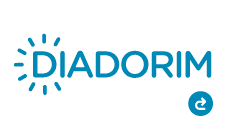Clown Group - Engineers without Borders (Knowledge Connections): Building a Humanistic Training in Engineering Courses
DOI:
https://doi.org/10.5216/ijaeedu.v5i2.54678Resumen
The Clown Group – Engineers without Borders (Knowledge Connections) is a group of clowns formed by Engineers and Engineering students. The theoretical basis of the Clown Group goes back to the origins of Jerzy Grotowski's “poor theater” (1933–1999). Concerning the use of music, theater and dance to present and promote the pleasure of art, the Group values the interaction with the public and does not worry about the structural elements commonly characterized by the theater as stage and lighting. In this way, the Clown Group promotes a Humanistic Formation of its members by providing a development in the capacity of communication, contact with the external community and also the satisfaction, by allowing the art to be spread in a simple and effective way. The objective of this work is to analyze the importance of Humanistic Training in the professional and personal development of Engineers and Engineering students, treating as a special case the Humanistic Training linked to the actions of the Clown Group – Engineers without Borders (Knowledge Connections). As a hypothesis, it is expected that the experience of members and ex–members of the Clown Group can be proven through their training and presentations over the years. In order to evaluate the personal and professional development of members and ex–members of the Clown Group during the training process, a qualitative research was carried out, via an applied questionnaire, in addition to a documentary research by observation, in which data were collected through analysis and observation of photos and documents of the Clown Group. In addition, Artificial Neural Networks were used to correlate the members and ex–members based on the two applied researches. The members and ex–members of the Clown Group have experienced a major break in introspection, significantly improving their way of communicating with society. The members and ex–members presented an improvement in the way they relate to each other in a team, a fundamental aspect of an Engineer's professional life. The Clown Group presents itself as a very important action for Humanistic Training and the professional and personal development of Engineers and Engineering students. The diffusion of art in the academic and external community promoted by the Clown Group also allows the deconstruction of the stereotype that the areas of Engineering and the Arts cannot coexist.
Citas
School of Electrical, Mechanical and Computer Engineering Website, “Projeto Pedagógico de Curso (Engenharia de Computação)” (in Portuguese), Brazil [Online]. Available: http://www2.emc.ufg.br/p/4475–Engenharia–de–computacao, Accessed on: Dez. 28, 2016.
School of Electrical, Mechanical and Computer Engineering Website, “Projeto Pedagógico de Curso (Engenharia Elétrica)” (in Portuguese), Brazil [Online]. Available: http://www2.emc.ufg.br/p/4476–Engenharia–eletrica, Accessed on: Dez. 28, 2016.
School of Electrical, Mechanical and Computer Engineering Website, “Projeto Pedagógico de Curso (Engenharia Mecânica)” (in Portuguese), Brazil [Online]. Available: http://www2.emc.ufg.br/p/4477–Engenharia–mecanica, Accessed on: Dez. 28, 2016.
M. Chaui, Convite à Filosofia. São Paulo, SP, BRA: Editora Ática, 2010.
Plato, The Republic. Cambridge, UK: University Press.
A. V. Cenci, A. A. Fávero, “Notas sobre o papel da formação humanística na universidade”, Revista Pragmática Filosófica, vol. 1, pp 1–8, Oct. 2008.
J. Rojas, “O lúdico na construção interdisciplinar da aprendizagem: uma pedagogia do afeto e da criatividade na escola,” in Proc. Reunião Anual da Associação Nacional de Pós-Graduação e Pesquisa em Educação, Caxambú, MG, BRA, 2012, pp. 1–14.
G. A. de. Deus Júnior, L. V. R. Dias, J. L. A. Leitão, A. M. da Silva Filho, and C. L. B. da. Silva, “Perspectivas do Projeto de Ensino Engenheiros Sem Fronteiras,” in Proc. VIII Encontro de Pesquisa, Ensino e Extensão, Goiânia, GO, BRA, 2011, pp. 1–4.
G. A. de. Deus Júnior, L. V. R. Dias, J. L. A. Leitão, R. A. de Rezende Junior, A. M. da Silva Filho, and C. L. B. da. Silva, “Grupo Clown – Engenheiros Sem Fronteiras (Conexões de Saberes),” in Proc. V Seminário de Extensão Universitária da Região Centro–Oeste, Goiânia, GO, BRA, 2012, pp. 1–5.
J. Grotowski, L. Flaszen, and E. Barba, O teatro laboratório de Jerzy Grotowski: 1959–1969. São Paulo, SP, BRA: Perspectiva e Edições SESC SP, 2010.
D. FO, Manuale minimo dell'attore. Turin, ITA: Giulio Einaudi Editore s.p.a, 2009.
V. Spolin, Improvisation for the Theater. Evanston, USA: Northwestern University Press, 2006.
E Wallon, D Barrault, C Hodak, Le Cirque au risque de l’art. Paris, FRA: Actes Sud-Papiers, 2002.
M. F. Bolognesi, Circos e palhaços brasileiros. São Paulo, SP, BRA: Editora UNESP, 2009.
R. Courtney, Play, Drama and Thought: The Intellectual Background to Drama in Education. Toronto, CAN: Simon & Pierre Publishing Co. Ltd, 1989.
L. V. R. Dias, J. L. A. Leitão, R. A. de Rezende Junior, A. M. da Silva Filho, C. L. B. da Silva, and G. A. de Deus Junior, “Grupo Clown – Engenheiros Sem Fronteiras (Conexões de Saberes),” in Proc. IX Congresso de Pesquisa, Ensino e Extensão, Goiânia, GO, BRA, 2012, pp. 1–5.
S. S. Haykin, Neural networks and learning machines. Upper Saddle River: Pearson, 2009.
L. N. de Castro, G. A. de Deus Júnior, and J. Portugheis, “The construction of a Boolean competitive neural network using ideas from immunology,” Neurocomputing, vol. 50, pp. 51–85, Jan. 2003.
B. H. C. de Andrade, G. A. de Deus Junior, L. V. R. Dias, J. L. A. Leitão, and M. L. M. dos Santos, “Grupo Clown – Engenheiros Sem Fronteiras (Conexões de Saberes): Arte e Humanização,” in Proc. XI Encontro Centro–Oeste e Norte dos Grupos do Programa de Educação Tutorial, Corumbá, MS, BRA, 2013 , pp. 1–8.
B. H. de C. de Andrade, R. Cherubin, J. L. A. Leitão, G. A. de Deus Junior, L. V. R. Dias, M. L. Matias, and A. M. da Silva Filho, “Grupo Clown: Interdisciplinaridade e Humanização – O Parágrafo que Faltava,” in Proc. XVIII Encontro Nacional dos Grupo do Programa de Educação Tutorial, Recife, PE, BRA, 2013, pp. 1–4.
, B. H. C. de Andrade, R. Cherubin, G. A. de Deus Junior, G. L. Filho, A. S. Gomes, T. B. de Melo, M. L. M. dos Santos, A. M. Silva Filho, and C. C. Silva, “Grupo Clown – Engenheiros Sem Fronteiras (Conexões de Saberes): Construindo uma Formação Humanística nos Cursos de Engenharia por Meio da Arte,” in Proc. XLII Congresso Brasileiro de Educação em Engenharia, 2014, pp. 1–11.
B. H. C. de Andrade, G. A. de Deus Júnior, A. S. Gomes, M. V. de Paula, A. M. da Silva Filho, C. C. da Silva Júnior and C. L. B. da. Silva, “Grupo Clown–Engenheiros Sem Fronteiras (Conexões de Saberes): Construindo uma Formação Humanística nos Cursos de Engenharia por meio da Arte, Cultura e Conexões de Saberes,” Revista Eletrônica Engenharia Viva, vol. 1, no 2, pp. 85–114, Dec. 2015.
G. A. de Deus Júnior, A. S. Gomes, A. O. S. Oliveira, and , F. S. Pereira, “Conexões de Saberes: Arte, Cultura e Criatividade,” in Proc. XII Congresso de Pesquisa, Ensino e Extensão, Goiânia, GO, BRA, 2015, pp. 1-5.
Descargas
Publicado
Número
Sección
Licencia
Copyright
The author is responsible for the following statements by submitting an article electronically in the International Journal of Alive Engineering Education (IJAEEdu):
a) States that the document in question was reviewed by an expert in English language and it is an original work and it holds the prerogative to grant the rights contained in this license. It also states that the document does not infringe, as far as it is possible to know the rights of any other person or entity.
b) If the document in question contains material which does not hold the copyright, the author states have obtained the copyright holder’s permission to grant the Universidade Federal de Goiás (UFG) the rights required by this license, and that such material whose rights are third is clearly identified and acknowledged within the text or content of the document.
c) States that the study was conducted in accordance with the ethical standards of all applicable institutional, local, national and international guidelines.
d) It also states that any person appointed as author or co-author of the document is aware of it and agrees to be so appointed.
Authorization Form
As responsible for the submission of the document, I authorize the School of Electrical, Mechanical and Computer Engineering of the Federal University of Goiás to provide the paper free of charge, through the Electronic System for Publishing Magazines UFG (SEER / UFG) or in printed form, without compensation of copyright, in accordance with Law No. 9610/98. Is allowed, reading, printing and / or download, as a promotion of the Brazilian scientific production. Any use of the work not authorized under this license or the copyright law is prohibited.



